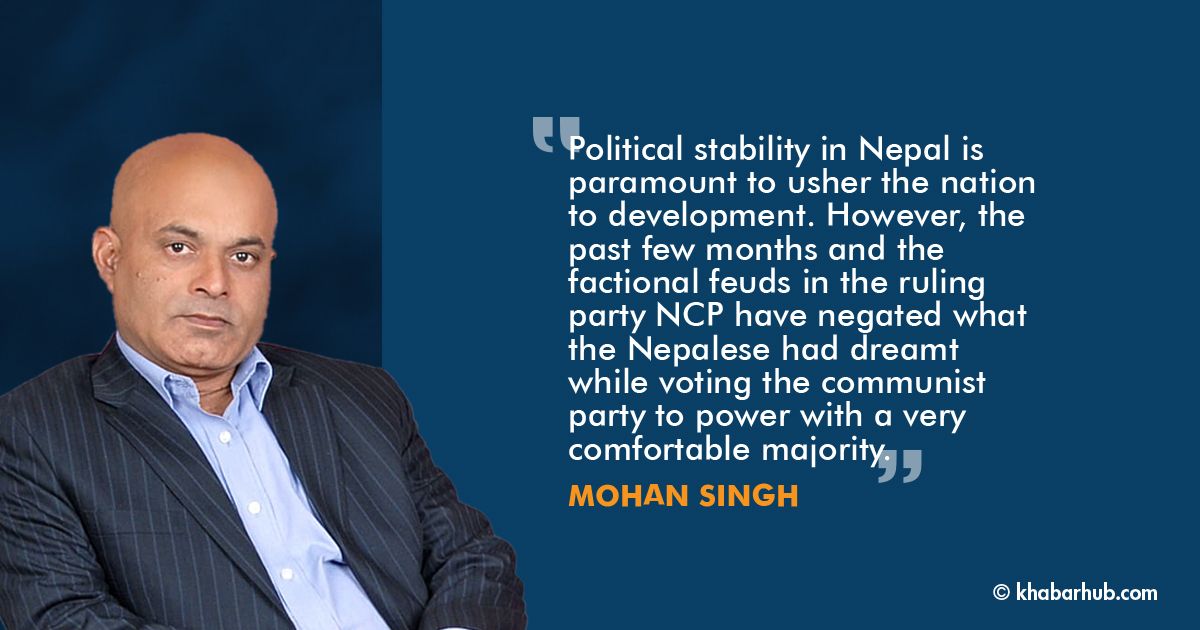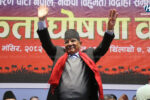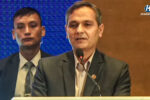The recent three-day India visit of Nepal’s Foreign Minister Pradeep Kumar Gyawali has ushered a new horizon in the Indo-Nepal bilateral relation that has successfully sailed through numerous litmus tests.
The Coronavirus induced problems and the humanitarian support from India as it provided the much-required Covid 19 vaccines to Nepal have yet again made it clear that no outside force in the world could derail the century-old relations.
The relationship deepens, as they emerge victorious despite the crisis. Gyawali’s India visit came at a time when Nepal is sadly expected to land in yet another political whirlpool and instability, following the dissolution of parliament by Prime Minister K P Oli.
Gyawali’s visit came after back-to-back Nepal visits of high-level Indian dignitaries including the RAW chief, Army chief and foreign secretary.
The visits, which are expected to be followed by the visit of the Indian foreign minister (provided Nepal finds a solution to the ongoing political bickering) worked as a healing balm even as the two countries have many bilateral problems to be sorted out mutually.
The two countries have realized that they not only have common culture and heritage to share. Geo-politically also the two nations largely depended on each other. Political stability in Nepal is paramount to usher the nation to development.
The border row, which is the main reason for distrust, could be settled through bilateral talks and democratic ways.
The back to back visit of Indian dignitaries paved the ways for renewed bilateral talks. This would go a long way to cement the Indo-Nepal relation.
Gyawali’s India visit is just the beginning. Even if the government’s detractors claim that it was only after the KP Oli government landed into the crisis that he hurriedly sent a foreign minister to India, the fact is that the realization that India and Nepal have no option but to pull and push together had come much earlier.
Though Chinese investors have emerged as the single largest foreign investors in Nepal, Nepalese could read much between the lines when a high-level delegation of the Communist Party of China visited Nepal in the last week of December and made desperate but unsuccessful attempts to fish in the troubled water.
The Nepalese thwarted the attempts. By the time Prime Minister Oli dissolved the parliament paving the way for mid-term election and the ruling Communist Party witnessed the vertical split, a good sense had already prevailed.
The land of Mount Everest and once known as one of the most peaceful nations in the world has not yet forgotten how the authoritarian Rana rules had pushed the country to the darkness.
The realization was clear and simple: Nepal and India are not fair-weather friends. They have already tested rough waters and emerged stronger to thwart ill attempts to vilify the bilateral relations.
The two countries have realized that they not only have common culture and heritage to share. Geo-politically also the two nations largely depended on each other. Political stability in Nepal is paramount to usher the nation to development.
However, the past few months and the factional feuds in the ruling party have negated what the Nepalese had dreamt while voting the Communist Party to power with a very comfortable majority.
Large sections of Nepalese were hoping that gone are the days of political instability and political bloodshed. The outside media – which otherwise had been portraying the Land of the Buddha as the land of political instability and killings – had started slowly changing their perspective as our political masters proved their maturity and gave the country a new and progressive constitution.
But the dissolution of the parliament, mudslinging amongst the leaders who once were held high by commoners and the rallies on the roads thus disturbing normal life have once again started dominating the newspaper headlines.
The longer the political bickering continues, more harm would be caused to the country and it’s time we all join hands and find out a solution acceptable to all.
Nepalese have emerged politically stronger and matured amidst the decade-long Maoist movement and have realized that democracy prevails over all other systems of governance.
The land of Mount Everest and once known as one of the most peaceful nations in the world has not yet forgotten how the authoritarian Rana rules had pushed the country to the darkness.
India and Nepal have always been adhering to the tenet of ‘A friend in need is a friend indeed. The Coronavirus has once again proved that the two countries look forward to opportunities to serve each other when one of them lands into a problem no matter what that problem be.
The Nepalese have also understood that neither the Maoist way of governance nor the kingship would do any better for the country.
India as a sovereign nation has always been a torchbearer in regard to democratic exercises and governance. Nepal cannot deny the role of India in helping it to usher into democracy.
Our northern neighbor has been unsuccessfully trying to indulge itself in a tug of war with the largest democracy in the world by trying to make Nepal a scapegoat to serve its vested interest.
India and Nepal have always been adhering to the tenet of ‘A friend in need is a friend indeed. The Coronavirus has once again proved that the two countries look forward to opportunities to serve each other when one of them lands into a problem no matter what that problem be.
Pradeep Yadav, a member of parliament from Parsa in his recent social media post said. “As a neighbor, India has strengthened the historical and people to people relation between the two courtiers by providing vaccines against the deadly virus.”
According to Yadav, the bilateral relationship is not only based on diplomacy and India has always stood by Nepal as and when it requires.
Hope 2021 would bring the two nations closer as the Nepalese defy all the ill motives against them.









Comment